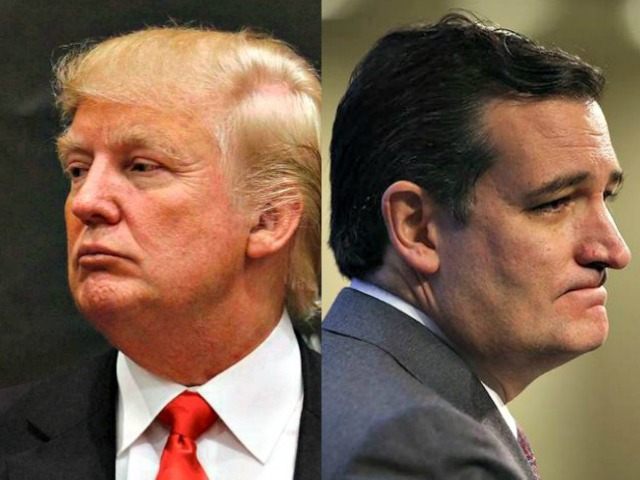On Friday, Donald Trump reversed course and announced he would skip the annual CPAC conference on Saturday and campaign instead in Kansas. Kansas is one of four states voting in Republican primaries or caucuses on Saturday, contests that have been obscured by the Super Tuesday votes this week.
The four states voting — Kansas, Kentucky, Louisiana, and Maine — offer 161 delegates between them, more than the first four early voting states combined. Neither Marco Rubio nor John Kasich are really in any of these states. Rubio, in fact, cancelled campaign events scheduled this week in Kentucky and Louisiana, to focus his efforts on his must-win home state Florida.
While other candidates are on the ballot, at least three of these races come down to a contest between Ted Cruz and Donald Trump.
Kansas, Kentucky, and Lousiana are all closed elections, meaning voting is only open to individuals who are already registered with the Republican party. Maine is also limited to registered Republicans but, like the Iowa caucus, voters can register to vote with the party on caucus day.
The most recent poll of Kansas shows Donald Trump leading Ted Cruz by six points. A poll released last week showed Trump leading Cruz by 12 points in the race. There are a couple reasons to suggest the race is a lot closer than even that latest poll suggests.
The Kansas poll was conducted Wednesday and Thursday, the majority of which was done before the most recent Republican debate. Even so, Cruz has a strong 13 point lead over Trump among “conservative Republicans.” Trump leads among “moderate Republicans” and has a large lead among “independents.”
It is uncertain how many self-identified “independents” will take part in a closed Republican caucus. Caucuses also favor campaigns that have strong organizations and campaign infrastructure, a phenomenon that allowed Cruz to surprise many observers and win the Iowa caucus.
In Louisiana, Republicans will vote in a more traditional primary. On Tuesday, Louisiana Republicans met and voted in caucuses to select delegates to the state’s convention. Cruz dominated Tuesday’s vote. The caucus vote doesn’t have any official bearing on Saturday’s primary, but it suggests Cruz has a strong organization in the state.
The most recent poll in Louisiana showed Trump with a 12 point lead over Cruz. However, around 20 percent of the voters were still undecided. Earlier polls show Trump with a nearly 20 point lead in the state.
Even the lastest poll was conducted before the Republican debate on Thursday. Cruz’s strong performance in the caucus vote on Tuesday suggests he will have a strong ground operation on Saturday. Again, it is likely the race is much closer than the poll indicates.
Louisiana also awards some of its delegates based on votes in Congressional Districts. The race between Cruz and Trump is very close in a couple Districts, suggesting the final delegate count could be close, regardless of who wins the overall state vote.
Kentucky is conducting its first ever caucus on Saturday. The shift in voting formats was done to faciliate the expected Presidential campaign of Sen. Rand Paul. It is possible the state has some difficulty executing the caucus format, as it is very different from a primary.
The only poll of the contest was conducted last week, before the Super Tuesday contests. That poll showed Trump with a 13 point lead over Marco Rubio, in second place. Cruz was a close third in the poll. However, 15 percent of Republicans were still undecided.
Ben Carson had seven percent support in the poll. With Carson out of the race, those caucus voters will have to find another candidate to support. How they break could make the results much closer than polling suggests.
The last state to vote on Saturday is Maine, which has the fewest number of delegates at stake, 23. It is a caucus format, but open to unaffiliated or new voters who can register with the Republican party on the day of the caucus.
There is no polling in Maine. Other than Donald Trump’s swing through the state on Thursday, campaigns haven’t devoted any time recently to the state. The state’s Governor, Paul LePage, has endorsed Trump, which should give him a clear edge.
The overall gap in delegates between Donald Trump and Ted Cruz is much narrower than media reports would suggest. To date, there are only around 90 delegates separating Trump and Cruz. In the 15 contests so far, Trump has won around 34 percent of the vote against Cruz’s 28 percent of the vote.
Strong showings by Cruz in Kansas and Louisiana could narrow the delegate map even more.

COMMENTS
Please let us know if you're having issues with commenting.